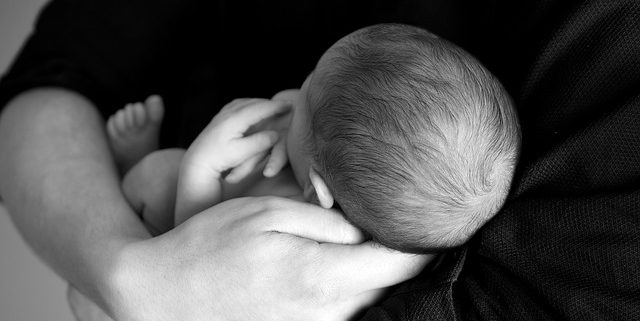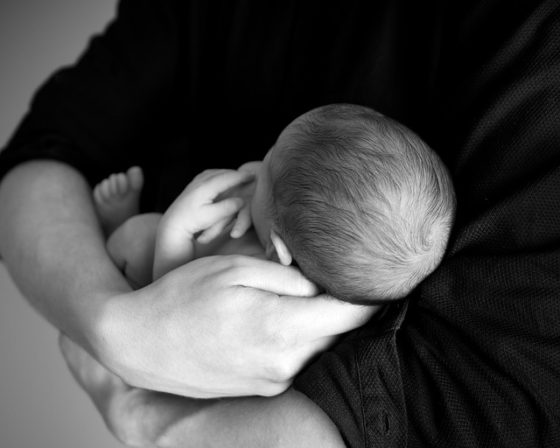Pregnancy After 40: Risks and Safety
Many women are waiting longer to have children – even into their 40s and beyond. And pregnancy after 40 is somewhat different from pregnancy earlier in life, with its own risks and characteristics. With current medical technology, pregnancy after 40 is safer than ever. But there are still a number of health risks for both mother and child that you should be aware of.
Contents
Cardiovascular Issues
Pregnancy is hard on your body – you’re carrying a lot of extra weight and pumping a lot of extra blood for 40 weeks. That stress can cause preeclampsia, or pregnancy-induced high blood pressure, which can be fatal to both mother and child. The risk of preeclampsia for all mothers is right around 3%. But for mothers over the age of 40, it’s 5-10% and a whopping 35% for mothers over 50.
Because of the strain on your heart, pregnancy can also jumpstart lurking health problems. Women with borderline high blood pressure or high cholesterol may end up with hypertension or other heart problems much earlier than they would have without a pregnancy. The extra weight you gain during pregnancy increases your risk for heart disease, as do some fertility drugs.
Note that these risks are associated with preexisting conditions. If you’re healthy and don’t have full-blown or borderline heart, blood pressure, or cholesterol problems, your risks aren’t much higher than they would be if you were in your early 30s. The problem is that it’s not always easy to tell whether you have borderline problems. Many fertility clinics will require more intensive cardiovascular testing before treating you to help rule out these issues.
Gestational Diabetes
Some women develop diabetes just during their pregnancy – gestational diabetes. It can cause complications for the baby, including very high birth weight. It also increases the risk that the mother will develop diabetes later in life. In general, you’re at a higher risk for GD if you have a family history, are overweight, or have had it before. But you’re at a much higher risk for GD during pregnancy after 40 even if you have none of those factors.
Placenta Growth
The placenta is the source for all the nutrients your baby needs. But a growing placenta can put a serious strain on your body’s resources. That’s even more true in a pregnancy after 40. The risk of placenta previa (where the placenta is in the wrong place, which can cause severe and even fatal bleeding) is ten times higher for women over 40 than for women under 30.
And some women simply have trouble growing and maintaining a placenta, which will be the size of a watermelon by the time you give birth. Vascular disease and heart disease are common in women over 40 and may make it difficult for your body to keep up the blood flow you need to support the placenta.
Other Health Conditions
We’ve said it before and we’ll say it again – pregnancy is just plain hard on your body. You’re carrying a lot of extra weight around, your hormones are going nuts, your organs are getting moved out of the way, and your heart is working a lot harder than it’s used to. Plus, the baby is demanding a ton of nutrients, all of which have to come from you.
With all that strain, pregnancy can exacerbate any other health conditions you have – and the older you are, the more likely you are to have those kinds of conditions. Pregnancy and breastfeeding can draw calcium out of your bones, for example, which could make osteoporosis worse. It increases the likelihood of developing blood clots and women over 40 already have a high risk for vascular disease.
That said, pregnancy after 40 doesn’t carry significantly different risks for a fit woman with no preexisting health problems compared to pregnancy at 30. It all comes down to your unique health situation.
Risks of Pregnancy After 40 for Baby
Health risks for mom mean health risks for baby – struggling with heart disease or diabetes can affect your growing little one. And pregnancy after 40 is associated with certain other risks. Many people are already aware that the risk of your child having Down syndrome increases with the age at which you get pregnant. The risk of genetic abnormalities in general increases with maternal age; the DNA in your eggs can degrade over time.
About 1/3 of pregnancies after 40 end in miscarriage. In part, that’s caused by the increased incidence of placenta previa and placental abruption. Hormonal changes starting in your late 30s can cause the lining of your uterus to thin, making it harder to carry a pregnancy to term. In addition, pregnancies in your late 30s and early 40s are more likely to be multiples (due to certain hormonal changes), which are higher risk for both mother and babies.
Safe Pregnancy After 40
It’s easy to be a little apprehensive in the face of the possible risks, but take them with a grain of salt. “Biological” age doesn’t necessarily correspond to your actual age and most women have healthy pregnancies regardless. The trick (whether you’re 25 or 45) is to be proactive. Talk to your doctor when you’re trying to get pregnant and be dedicated about your prenatal care. You may also talk to your doctor about genetic testing; there are a variety of options and certain tests may be more effective at certain ages so you’ll need to find what’s right for you.
And above all, take care of yourself! The best thing you can do to encourage a healthy pregnancy is to be healthy yourself – regular exercise, healthy diet, healthy weight, healthy sleep habits, the works. Healthy moms make healthy babies.









Im 45 years young, and I ideally want 2 more children.I’m in ok shape, should I go ahead or not? I’m confused.
Oops 1 more but 2 is ok too
Am 41yrs pregnant l hope all goes well, and am booked for FAS scan in October to check the abnormalities of the baby just praying that all goes well
Best of luck!
Am 41 and a nursing mother for a 4month old baby. I delivered
my baby about 4 months ago through induced labour due to the the threat of preeclamsia. Now I have missed my period. What is the risk of keeping the pregnancy?